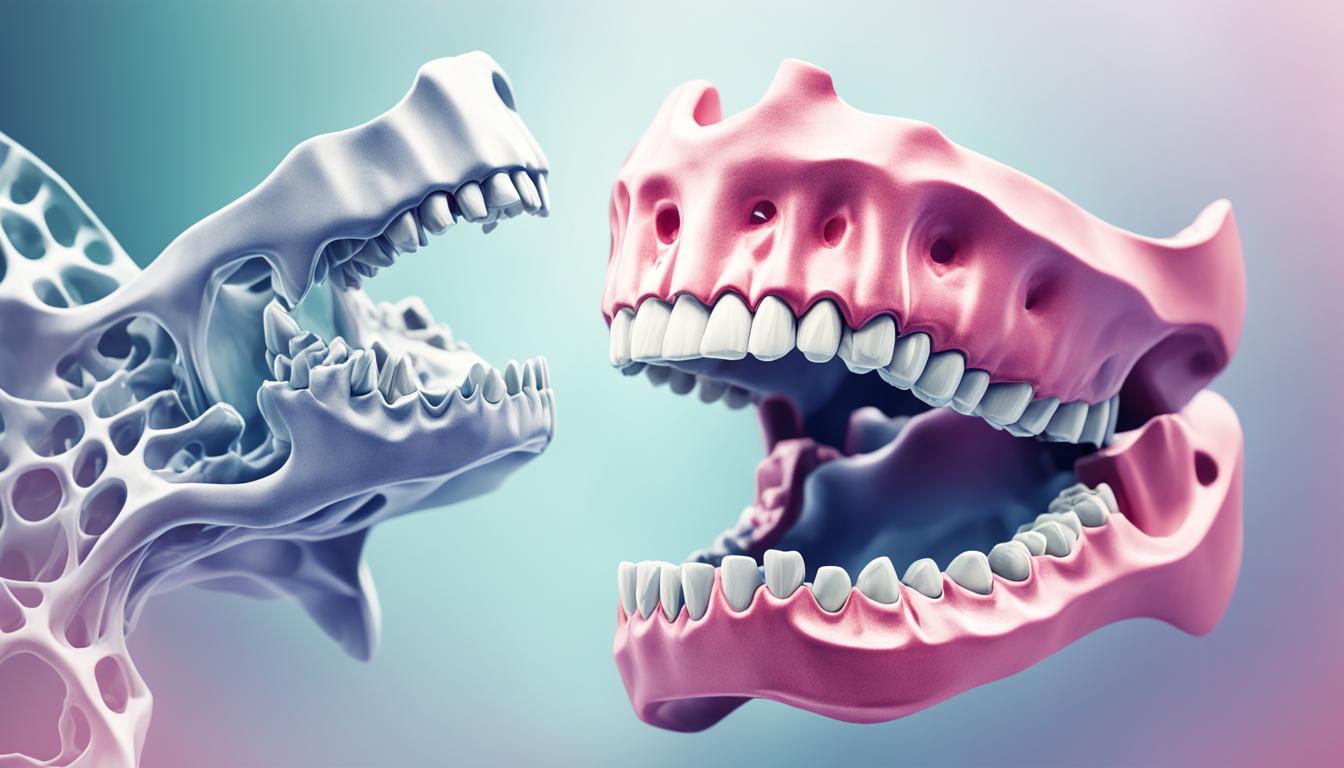Lockjaw is known as trismus and means it’s hard to open your mouth. It’s often due to tetanus, a disease that makes your muscles stay tight. This leads to sharp and uncontrolled muscle spasms.
Lockjaw shows as having trouble opening your mouth, occasional ‘locking’ of your jaw, and less ability to open wide. It makes eating, speaking, and even swallowing challenging. Inflammation around the jaw causes most cases. This can come from wisdom teeth pushing on other teeth or infections.
After you notice lockjaw, it’s crucial to get help. If not treated, it can make eating a problem, harm your teeth, and stop your jaw joint from moving. Doctors treat it with warm compresses, sometimes surgery, muscle relaxants, and more.
To avoid lockjaw, get your tetanus shots and keep up with dental visits. These can find and stop infections that might lead to problems. Getting physical and dental therapy after a case can bring back normal jaw movement.
Key Takeaways:
- Lockjaw, also known as trismus, is a condition characterized by a reduced ability to open the mouth.
- Tetanus infections are a common cause of lockjaw, leading to prolonged muscle contractions and spasms.
- Symptoms of lockjaw include difficulty in opening the mouth, intermittent ‘locking’, and changes in speech patterns.
- Lockjaw can be caused by impacted wisdom teeth, infections, jaw dislocation, or side effects of medications.
- Treatment options for lockjaw include warm compresses, surgery, muscle relaxants, and physiotherapy.
- Tetanus vaccination, regular dental check-ups, and avoiding medication side effects are important for lockjaw prevention.
- Rehabilitation is vital to minimize trauma, restore muscle function, and improve joint mobility in lockjaw cases.
Tetanus Infections and Lockjaw Symptoms
Tetanus is often called lockjaw since muscle contractions make it hard to open the mouth. A bacterium called Clostridium tetani causes these infections. It releases toxins that cause muscles to stay contracted and spasm.
People with tetanus feel their muscles are tight and may have spasms. This can happen in the face, neck, and arms or legs. These spasms can happen because of loud sounds, being touched, or bright lights. In extreme cases, tetanus can cause the body’s involuntary functions to go wrong. This can mess up blood pressure, heart rate, breathing, and even lead to a heart attack.
Tetanus doesn’t show up right away. It can take from one to 60 days, usually about a week on average. If you or someone you know has trouble opening their mouth, see a doctor right away. This is key if a tetanus infection is suspected.
Tetanus Symptoms:
- Lockjaw (trismus)
- Muscle stiffness and spasms
- Spasms triggered by noise, touch, or light
- Difficulty in opening the mouth
Lockjaw Causes:
- Tetanus infections
- Toxins produced by Clostridium tetani bacteria
If you think you might have tetanus or notice lockjaw symptoms, don’t wait. Getting early treatment is vital. This helps prevent any severe problems from a tetanus infection.
Treatment and Prevention of Lockjaw
Lockjaw treatment depends on what’s causing it. For cases caused by tetanus, the main aim is to get rid of the infection and ease symptoms. This includes using tetanus immunoglobulin, antibiotics, and methods to relax the muscles. Supportive care also helps manage complications like trouble breathing and muscle spasms.
Sometimes, surgery might be needed to fix the teeth or joints. To prevent lockjaw, getting a tetanus shot is key. Make sure your shots are current, especially if your job or hobbies put you at risk for tetanus. Keeping up with dental visits also helps steer clear of infections that could lead to lockjaw.
Rehab after lockjaw can involve dental work and physiotherapy. This helps lessen jaw joint damage, rebuild the muscles, and improve jaw joint movement. It’s important to stick to the advice of your healthcare provider to lower the risks and avoid lockjaw complications.

